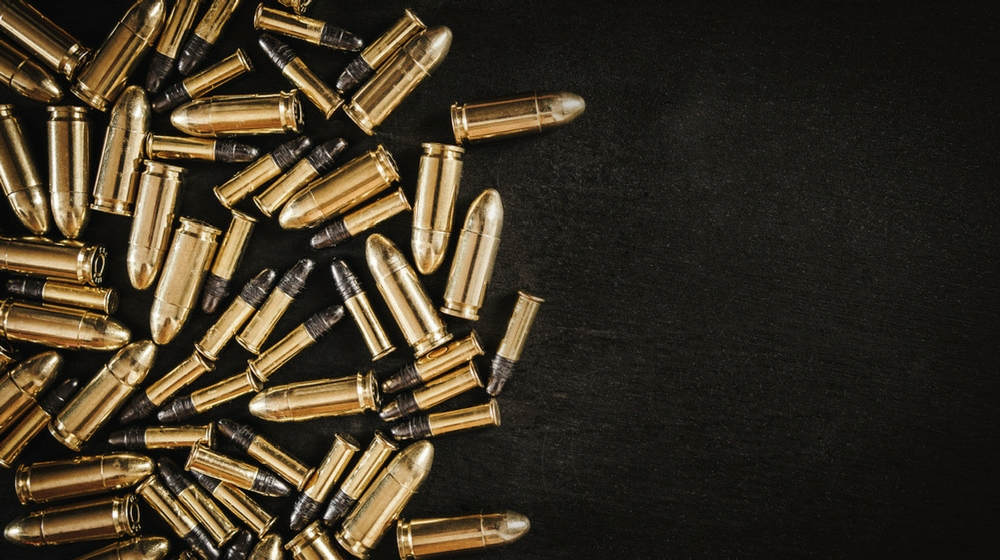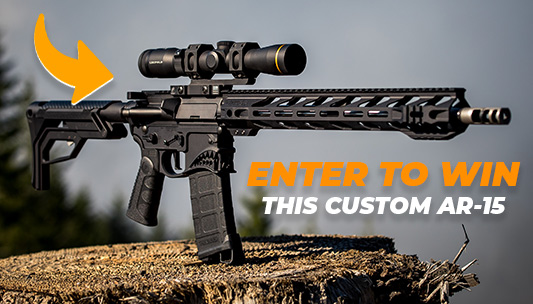Tips & Tricks
Gun Safety Tips | When to Replace Your Ammunition
Published
1 year agoon

These gun safety tips will make your ever reliable pistol in tip-top shape. Just like any other tool, guns need maintenance in order to function the way they are designed. Regardless if it's a range toy, an old hunting companion, or an everyday carry, it is very important to clean and maintain your weapon. Having a right and well-maintained ammo is pretty crucial to a gun's performance and reliability making it necessary to know when to replace it. Below are some basic gun safety tips and guidelines you might want to consider when replacing your ammunition.
Gun Safety Tips: The Right Time To Change Your Ammo
1. Use Quality Ammo Only

Modern ammo can endure tons of stress and torture before it fails. However, using poor quality bullets can cause your gun to malfunction. There are several types of failures you might encounter such as failure to feed, failure to eject, failure to fire, and premature ignition.
Gun malfunctions could be a failure to load the ammo or when the bullet does not eject. It usually starts with ammunition feeding problems, then it becomes a “jam” in the chamber. This is why it's important to only use quality products and refrain from substandard ammo casings which flood the market. Guns are dangerous so you can't take any chances for your safety, as well as the safety of everyone around you.
Premature ignition is another possible gun malfunction you may encounter with poor quality ammo. This happens when a bullet's primer is set off in the process of loading. To prevent these risky malfunctions from occurring, it is recommended to cycle your ammo, but not too frequently as it also may damage the bullet.
2. Change a Disfigured Bullet
Some people tend to develop a habit of constantly cycling a round into a gun's chamber. This causes the tip of the bullet to be disfigured causing a slight dent. In some cases, the bullet gets enough dent to cause a jam in the gun, making it unusable for the time being. So check your bullets and replace the disfigured ones. Moreover, don't do unnecessary cycling of ammo in your gun's chamber.
3. Consider the Type of Gun – Revolver vs Semi-Auto

You also need to consider the type of gun you're using. If you're using a revolver, you can easily place the bullet in the chamber without any stress during the insertion.
On the other hand, in a loaded semi-auto pistol, the chamber receives the first round forcefully. The second round is subject to the movement of the slide. If you load or unload often, these two can interchange and cause the bullet to have a little dent.
https://twitter.com/GunCarrierUSA/status/900745284262780929
4. Change Ammo Depending on Use

If your gun is a daily carry which you load and unload frequently, you can change your ammo more frequently as well. But if your gun doesn't leave the bedside, then the ammunition can last a bit longer. Exposure to sweat, humidity, daily handling, and temperature fluctuations can alter the condition of your ammo.
5. Rotate Your Ammo

This guideline is quite similar to the previous one but discusses a more specific timeline on rotating ammo. According to some gun experts, you should rotate your ammo every six months. This applies if you have a concealed carry gun you carry every day for protection.
Another factor to consider is the exposure of the gun to environmental variables such as extreme temperatures and sweat on a daily basis. If there's frequent exposure, it shortens the service life of your ammo faster.
On the other hand, if your gun is solely for home defense that doesn't leave a climate-controlled environment, then you can lengthen your ammo rotation to at least a year. Additionally, there are other gun enthusiasts who rotate their ammo once every 90 days, so it is really just a matter of choice. When you are in doubt, inspect your ammo and check if it's time to change.
Looking for the best ammo for personal defense? Watch this video by handguncombatives, and choose the best ammunition that can save your life in a survival situation:
A gun without the right ammo is like paper shoes in a stormy weather. When we feel our gun is underperforming, we should check it at a drop of a hat. Inspect every inch of the weapon and make the necessary changes and replacements, especially if it used as a defensive carry. Not only that, if we want our weapon to ensure longevity, then proper maintenance is a must.
Do you know other gun safety tips? We would definitely want to know about it. Share your thoughts in the comments below!
Up Next: Colt Defender Series | Gun Carrier Compact Pistol Review
Follow us on Facebook, Instagram, Twitter, Tumblr, and Pinterest!
Editor’s Note: This post was originally published on August 22, 2017, and has been updated for quality and relevancy.
You may like

CZ 75 SP01 Tactical Gun Review | Gun Carrier

PODCAST: Gun Law Changes All Across America Right Now

PODCAST: How to Win Olympic Gold

PODCAST: 50 Important Ideas For Self-Defense, Self-Reliance, and Personal Safety

10 Best Gun Safes In 2022 | Gun Carrier

DP-12 | Double Barrel Pump Shotgun Gun Full Review


